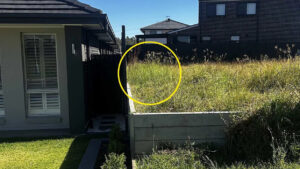
A new children’s book titled Raindrops and Dreams aims to help young witnesses of domestic violence articulate their experiences. This initiative, led by author Katrina Tsaftaropoulos, seeks to provide a supportive framework for children grappling with complex emotions related to violence in their families. The project is particularly significant given the increasing demand for resources addressing domestic violence, as highlighted by the growth of support services.
The inspiration for this book emerged from Tsaftaropoulos’ previous work as a domestic violence case worker at Legal Aid NSW. Her experiences in court advocacy revealed the challenges faced by women who attended hearings with their children. Tsaftaropoulos noted, “It was clear children were very much a reason why clients make decisions that they make and I thought it would be really difficult for mums to find the language to explain what they were going through.”
Bringing Words to Life Through Art
The story unfolds through charming rhymes and captivating illustrations, aiming to resonate with young readers. Tsaftaropoulos crafted the narrative in verse to incorporate essential language related to domestic violence. She emphasized, “Kids who experience domestic violence are not just witnesses; they are impacted by it. I really wanted the story to be true to form and for children to not feel so alone.”
The illustrations, created by Marina Wilkinson, add a personal touch to the project. Wilkinson, who described herself as primarily an artist, drew from her own experiences of witnessing domestic violence as a child. She aimed to portray the strength of women protecting their children, stating, “A lot of the book is my personal memory in visual form.” To soften the harsh realities of the subject matter, she opted to use animals instead of human characters, commenting, “There was no way I could draw humans because I didn’t want to put bruises on them.”
The narrative centers around a crocodile family living in a swamp, highlighting the impact of domestic violence through the character dynamics. When the father crocodile exhibits aggressive behavior, the police are called, and the children temporarily stay with their aunt. The story introduces relatable Australian animals, such as turtles and kangaroos, making it accessible for local readers.
Addressing a Critical Issue
Both Tsaftaropoulos and Wilkinson see the book as a conversation starter about a difficult yet necessary topic. Tsaftaropoulos remarked, “Sometimes conversations that are hardest to have are the ones that are needed the most.”
The domestic violence unit at Legal Aid NSW, established a decade ago, has become a crucial resource for survivors. According to family law director Katie Kelso, the unit has experienced a staggering 700 percent increase in demand since its inception, with a 70 percent increase in the last two years alone. Kelso stated, “The role of Legal Aid is not only to provide representation services but we also see our role in raising awareness of issues in the community.”
For those seeking help, resources such as 1800 RESPECT (1800 737 732), Lifeline (13 11 14), and the Men’s Referral Service (1300 766 491) are available to provide support and guidance.
The publication of Raindrops and Dreams represents a significant step toward creating dialogue around domestic violence, ultimately fostering a greater understanding and support network for children affected by such circumstances.







